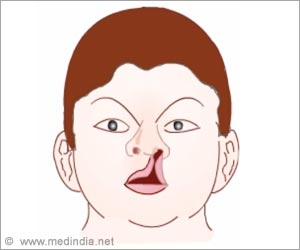Stem cell therapy can help regenerate damaged heart muscle in patients who have experienced heart attack for the first time, reveals a new study.
Treating heart attack may become as simple as administering stem cell products through an IV line, in the years to come. Stem cell therapy can help regenerate damaged heart muscle in patients who have experienced heart attack for the first time, reveals a new study.
The distinct advantage of the procedure is that intravenous infusion of adult mesenchymal stem cells derived from the bone marrow of a healthy donor can reverse heart tissue damage, elimininating the need for complex procedures.While other therapies concentrate on delivery of therapeutic agents directly to the diseased site either through open surgery or catheterization procedures, the above method is very simple and more acceptable by the patient.
A person who has survived a single, massive heart attack is usually left with substantial damage to the heart muscle as a consequence of compromised blood supply to the heart, during a heart attack. The overall ability of the heart to pump blood is compromised with the consequent muscle damage eventually leading to heart failure.
The study has been conducted at Rush Cardiac Catheterization Laboratory, which is the only cardiac care center in Illinois participating in the trial. Nationwide, 15 other centers participate in the stem cell research.
Mesenchymal stem cells (MSC) that have the potential to develop into mature heart cells and new blood vessels are derived from the adult bone marrow. This eliminates the ethical concerns associated with harvest of embryonic stem cells that are derived from human embryos that have been discarded for reproductive purposes.
As these cells are in primitive stages of cell development, placement of these cells from a donor to a recipient is not associated with an immune trigger. These cells can therefore be transplanted to a specific patient without tissue type matching, similar to O group blood. The MSC cells harvested from a single donor can be stored under appropriate conditions to help treat thousands of patients.
Advertisement
Previous studies conducted on stem cell therapy have already demonstrated ability of these cells to migrate to injured sites and induce healing. Stem cells have the inherent ability to migrate to the region of a heart attack to induce repair of heart muscle in a patient who has had a heart attack.
Advertisement
Before the procedure, the patients would be subjected to a CT scan, an MRI and a pulmonary function to ensure that they satisfy the eligibility criteria for the trial. At the end of the study, the patients would again be subjected to an MRI examination to notice improvement in repair of the damaged heart muscle and muscle function. Following hospitalization for a short period of 2-3 days, the patients would be discharged home.
If the results of the above study yield promising results, we might soon have a new treatment modality to treat congestive heart failure, which is the leading cause of disability in the United States.











